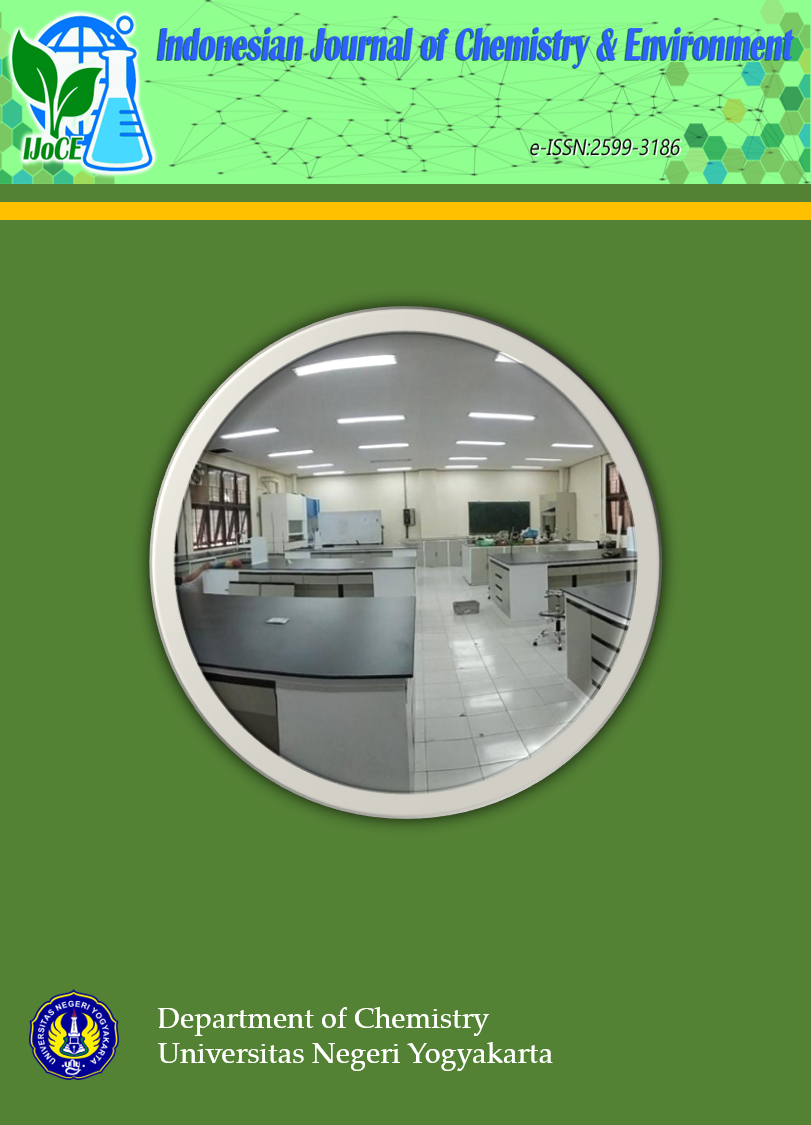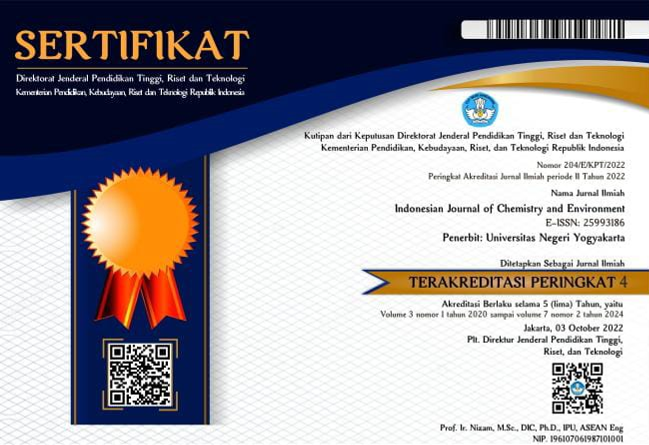Adsorption of Ammonium Ion from Tofu Industrial Liquid Waste by Coconut Shell-Activated Carbon
DOI:
https://doi.org/10.21831/ijce.v2i2.38190Abstract
Liquid waste from tofu industry will flow or discharge into water. It causes pollution which is characterized by unpleasant odor. If this continues, it can damage the environment and threaten the health of the people who inhale the unpleasant odor. Activated carbon is a carbon that is able to adsorb in the liquid phase or gas phase. Activated carbon is the best adsorbent in the adsorption system. The material for activated carbon comes from animals, plants, and waste or minerals that contain carbon. Coconut shell is an ingredient that can be made into activated carbon. Activated carbon from coconut shell has many benefits one of them can adsorb liquid waste from tofu industry. This study aims to examine the ability of coconut shell to adsorben, that have been activated by K2CO3 or HCl activator. In this study given the variation of activated charcoal mass and contact time variations to determine the effect on the ability of activated coconut shell charcoal adsorption on ammonia content in Liquid waste from tofu industry. The results of this study are the greater the mass of activated charcoal and the longer the contact time, the greater the ammonia absorbed by activated charcoal, which indicates that the percent decrease in ammonia concentration is greater
Downloads
Published
2021-01-24
How to Cite
[1]
Adha, C.N. et al. 2021. Adsorption of Ammonium Ion from Tofu Industrial Liquid Waste by Coconut Shell-Activated Carbon. Indonesian Journal of Chemistry and Environment. 2, 2 (Jan. 2021), 15–22. DOI:https://doi.org/10.21831/ijce.v2i2.38190.
Issue
Section
Articles
Citation Check
License
Authors who publish with this journal agree to the following terms:
- Authors retain copyright under a Creative Commons Attribution–ShareAlike License (CC BY SA) that allows others to share: copy, and redistribute the material in any medium or format, Adapt: remix, transform, and build upon the material, for any purpose, even commercially.
- Authors are able to enter into separate, additional contractual arrangements for the non-exclusive distribution of the journal's published version of the work (e.g., post it to an institutional repository or publish it in a book), with an acknowledgement of its initial publication in this journal.
- Authors are permitted and encouraged to post their work online (e.g., in institutional repositories or on their website) prior to and during the submission process, as it can lead to productive exchanges, as well as earlier and greater citation of published work.










